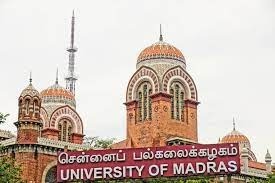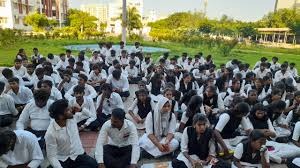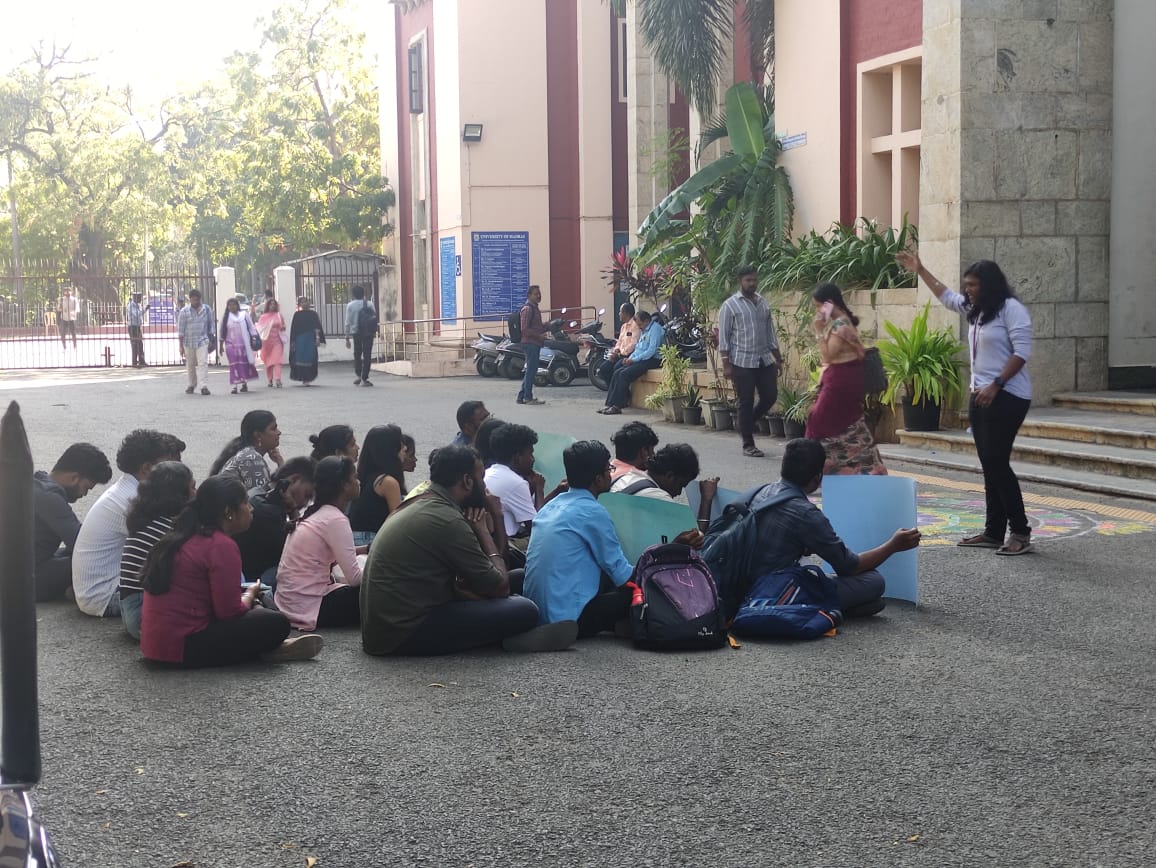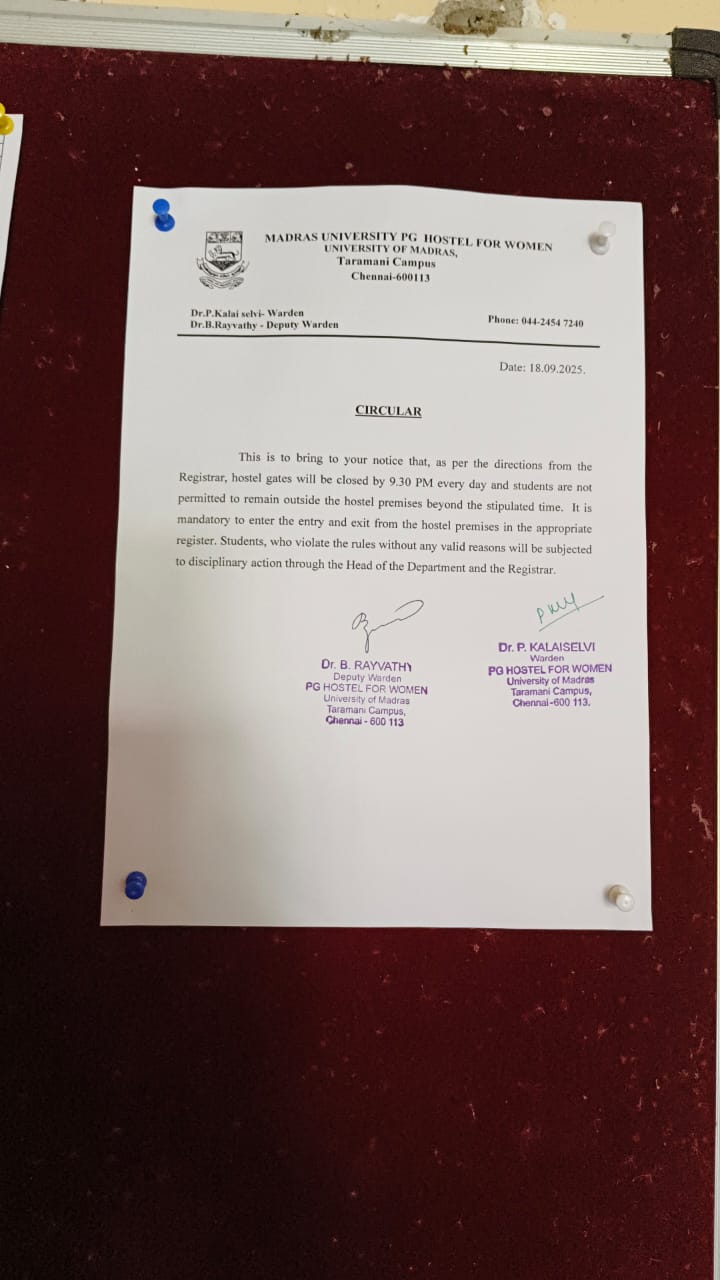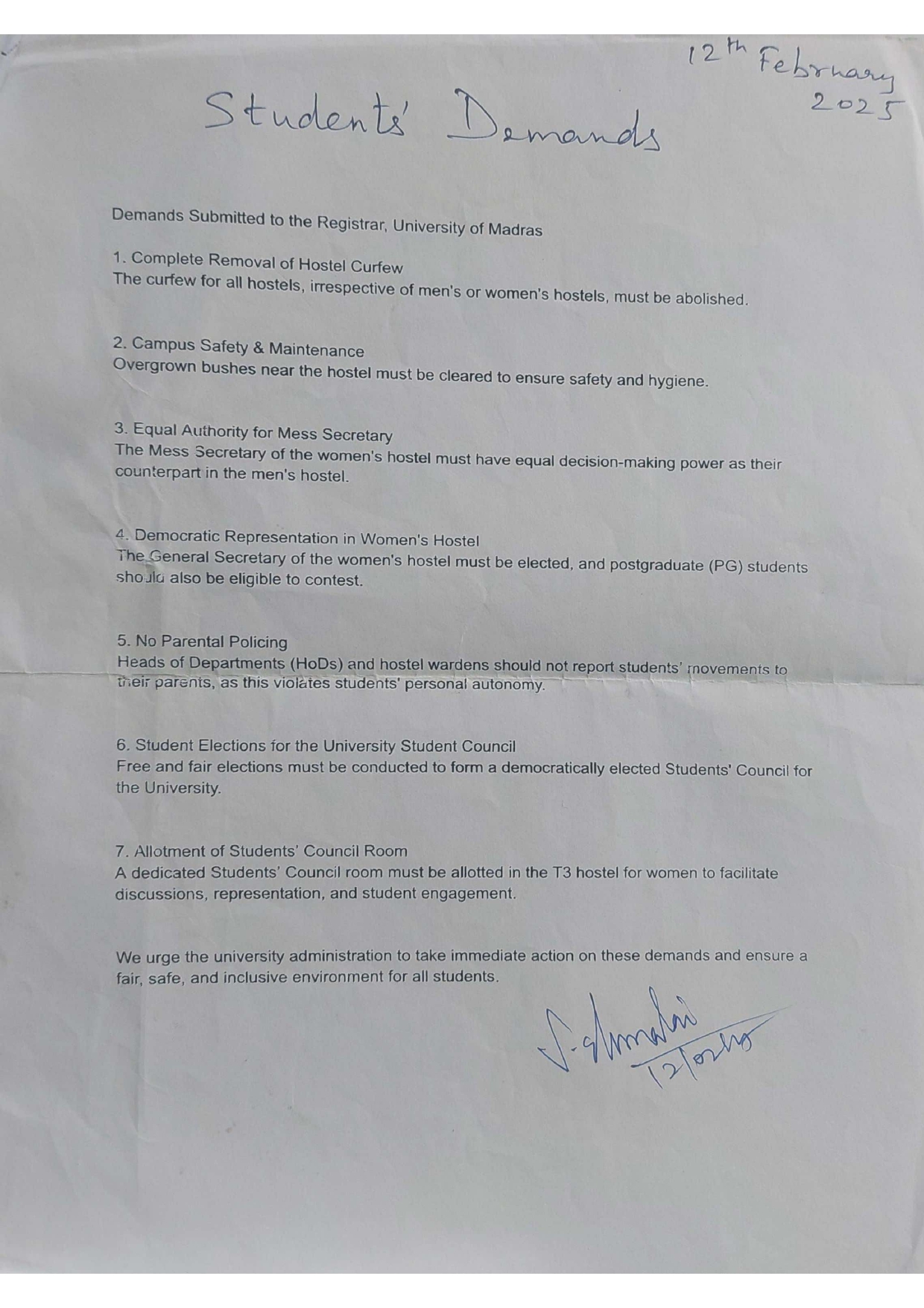
The imposition of hostel curfews exclusively on women students and the failure to conduct free and fair student elections reflect a disturbing pattern of systemic oppression within universities. Such practices not only curtail the liberty of women but also reinforce outdated conservatism that has no place in modern educational spaces.
Placing curfew restrictions only on women’s hostels is an inherently discriminatory policy. It frames women as the ones who must be confined for their “safety,” while absolving institutions of their responsibility to create genuinely secure environments. Safety is not achieved by restricting freedom but by improving infrastructure—building proper roads, clearing overgrown bushes, installing CCTV cameras, recruiting qualified wardens and watchmen, and eradicating abandoned structures that pose threats. By refusing to take these measures, universities are choosing the easier but unjust route of suppressing women students’ movements.
This policy is also a violation of constitutional principles. Since 1950, the Indian Constitution has guaranteed liberty and equality to women under Articles 14, 15, 19, and 21. Yet, decades later, women continue to face restrictions, oppression, and male hegemony—even within spaces meant for learning and empowerment. It is deeply unethical that the University of Madras, often called the “mother university” of South India, should continue to enforce such regressive rules, especially when central universities across the country have moved away from these practices.
Across India, students have consistently raised their voices against these discriminatory norms. The “Pinjra Tod movement in Delhi” is one of the most prominent examples, where women students united against sexist hostel curfew timings, arguing that curfews are not a measure of safety but a form of control rooted in patriarchy. Similarly, students in “Banaras Hindu University” and “Hyderabad Central University” have organized protests demanding equal rights and fair treatment. These struggles highlight a common thread: women are not asking for “protection” through confinement, but for freedom, equality, and structural changes that ensure their security without undermining their autonomy.
“Unfulfilled Student Demands Ignored by the University of Madras”
The recent developments at the University of Madras highlight this hypocrisy even more sharply. Despite students submitting a list of “seven key demands—which were duly approved and signed by the former Registrar, Prof. V. Elumalai, on 12.02.2025—the current Registrar, Prof. Rita John, has failed to recognize or implement them. These demands are:
- “Complete removal of hostel curfew” – irrespective of men’s or women’s hostels, curfews must be abolished.
- “Campus safety and maintenance” – overgrown bushes near hostels must be cleared to ensure safety and hygiene.
- “Equal authority for mess secretary” – women’s hostel mess secretaries must have equal decision-making power as their male counterparts.
- “Democratic representation in women’s hostel” – the General Secretary of the women’s hostel must be elected, with eligibility extended to postgraduate students.
- “No parental policing”– Heads of Departments and hostel wardens must not report students’ movements to their parents, as this violates students’ autonomy.
- “Student elections for the University’s Student Council” – free and fair elections must be conducted to form a democratically elected Student Council.
- “Allotment of a Student Council room” – a dedicated council room in the T3 hostel must be provided for women students to facilitate discussions, representation, and engagement.
These are not radical demands—they are the bare minimum for ensuring equality, dignity, and democratic participation within the university.
Breaking the Chains of Silence
The University of Madras administration cannot continue to suppress women in the name of “safety” or silence students in the name of “discipline.” As one of the oldest and most respected universities in South India, it has the moral responsibility to set an example—not of conservatism and control, but of progress and equality.
As students, we call for “immediate abolition of hostel curfews, democratic student elections, and equal representation in decision-making spaces.” We do not seek protection through chains, but security through justice.
In the words of “B.R. Ambedkar”: “I measure the progress of a community by the degree of progress which women have achieved.”
And as the “Pinjra Tod collective declared”: “Safety cannot be built on our imprisonment; safety will come with our freedom.”
It is time the University of Madras listens—not later, not tomorrow, but now.
